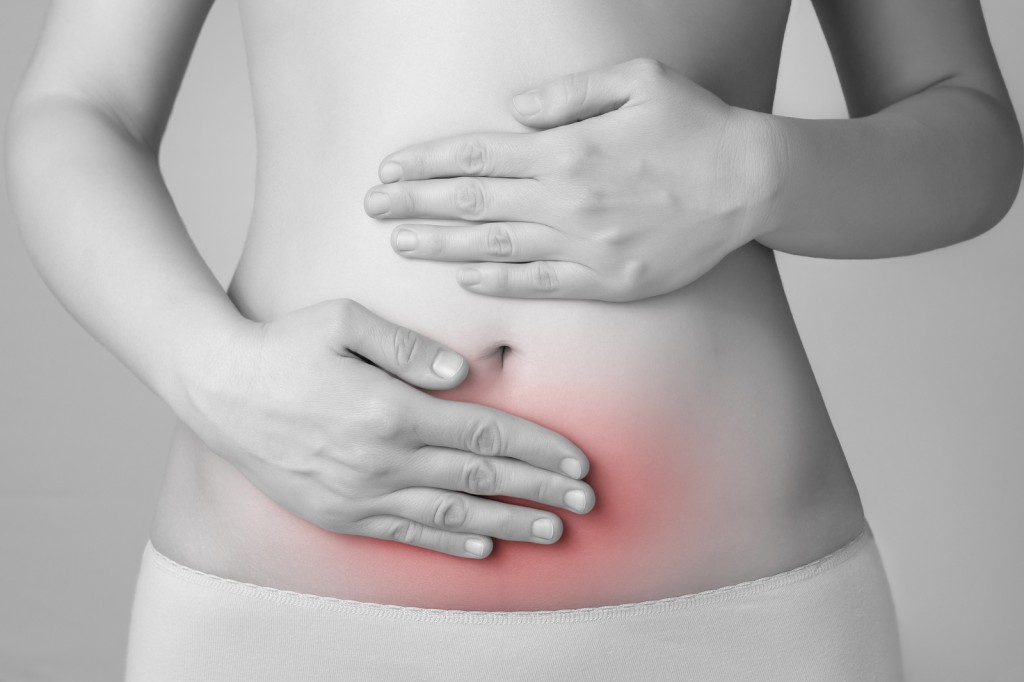- Make It Yourself Lavender Heart-Shaped Bath Bombs!
- 20 Things You Never Knew About “Down There”
- 12 Best Foods For Those Suffering From Arthritis Pain
- 12 Personal Hygiene Mistakes Almost Everyone Makes (Mom Never Told You About #4!)
- 15 Medicinal Plants And Herbs From The Cherokee People
- 12 Mind-Blowing Benefits Of Drinking Coconut Water During Pregnancy
- 12 Outstanding Winter Foods That Won’t Fatten You Up Like A Christmas Turkey
12 Reasons You Feel Bloated Much Of The Time (#7 Is Unbelievable!)

Photo credit: bigstock.com
6. Gluten Sensitivity or Celiac Disease
Celiac disease is a serious form of gluten intolerance, but many people find that even though they test negative for this disease, they simply cannot digest gluten without feeling bloated, nauseous, and gassy. Wheat has changed considerably over the past 50 or 60 years and the amount we consume has greatly increased as well. If you suspect that gluten might be a problem for you, it is simply to confirm your suspicions. Remove all gluten from your diet for a period of 5 weeks. There are plenty of alternatives to gluten including sweet potatoes, millet, rice, squash, and quinoa. If you find at the end of the 5 week period that you feel better, you most likely have sensitivity to gluten.
7. Intestinal Parasites
American’s don’t like to believe that they can have parasites in this day and age but they are easier to pick up than you might think. This is especially true of people who have traveled to South America, Asia, or Africa. However, it is not only travelers who can pick up parasites. In today’s modern world, where food is flown all over the world, parasites become frequent flyers, infecting people half a world away. Parasite infestations generally get worse over time and often come with other symptoms such as fatigue, loss of appetite, weight loss, and persistent diarrhea. If you believe you might have become infected, see your doctor for a test.
8. Excessive Consumption of Rich, Fatty, or Processed Foods
If you suffer from chronic bloating, chances are pretty good that it is food related. Eating a great deal of rich, fatty foods can cause bloating as fat takes much longer for the body to digest than other foods. This is the reason why fatty foods make you feel fuller for longer periods of time. Processed foods, especially those that contain an artificial sweetener called sorbitol, are well-known gas makers, causing you to feel super bloated after eating them. Limit or avoid fatty foods and processed foods to stop bloat.
9. Insulin Resistance
When you consume sugar or simple carbs, your pancreas releases a hormone called insulin. In a healthy person, insulin triggers the body to use the glucose and fats that are in the blood. When a person is insulin resistant, the cells do not fully respond to the insulin. When this happens, the pancreas releases even more insulin in an attempt to stimulate the cells. This results in high levels of sugar in the blood. If you have a family history of diabetes or if you have recently gained weight and feel tired and/or bloated after eating, you could have insulin resistance. Try removing as much sugar as possible from your diet and focus on eating plenty of vegetables, fruit, fiber, health fats, and protein. If you still feel bloated and tired after eating, speak with your doctor about testing.
10. Irregular Meal Times
One very common cause of bloating is simply eating at irregular times, often called eating on the run. If you go long hours without eating and then gorge yourself, or if you eat a large meal or snack shortly before bedtime, this causes your metabolism and digestion to suffer. People who skip breakfast and then try to make up for it by eating a large lunch (especially if it is a fatty meal like fast food burgers and fries) almost always have bloating for hours afterwards. Our bodies work best when we eat at regular times.
11. Eating Quickly and/or Overeating
This one is so obvious and one your mother probably nagged you about as a kid but it is still the #1 reason people experience bloating: eating too quickly and/or overeating. If you eat too much, your body struggles to digest it. Eating too fast often means we gulp large quantities of air. Slow down and chew your food thoroughly. You should also slow down to avoid overeating. Your brain takes about 20 minutes to get the signal that your stomach is full.
12. Deficiency of Digestive Enzymes
When we chew our food, this action stimulates the pancreas to produce digestive enzymes. This helps to break down the food into forms that the body can use. For some people, the body does not produce sufficient amounts of these enzymes to properly digest the meal. This means that food can remain in the gut for long periods of time and ferment, causing gas and bloating. One common type of enzyme deficiency that many people are aware of is lactose intolerance. Some people simply lack the enzyme to digest the sugar that occurs naturally in milk. A temporary solution to see if this may be true for you is to take a digestive enzyme with your meals.
READ ALSO: Top Anti-Bloating Food and Drinks: You Can Have a Flatter Tummy Tonight!
In very rare cases, excessive gas and bloating is the symptom of a much more serious health problem. If you feel as if you have tried everything, see your doctor so they can test you for Crohn’s disease, ulcerative colitis, inflammatory bowel disease, or colon cancer. These conditions are usually accompanied by other symptoms, such as blood in the stool, but if you have any doubts, please see your doctor for a proper diagnosis.
References:
































